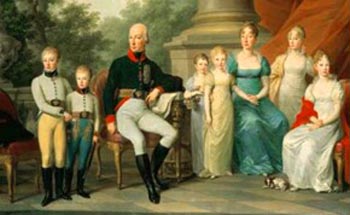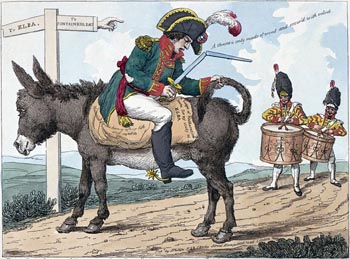 |
Organic Society
Fostering the Originality of Each Social Cell
Plinio Corrêa de Oliveira
To understand what a social cell is, let us consider the cells of a living organism, which can be vegetal, animal or human. Let us take the human body composed of organs, each one made of tissues perfectly ordained for its specific end. The brain tissue, for example, allows the brain to exercise its function; likewise for the heart, the liver and so on.
Each one of these tissues has, in its turn, its own cells. Each cell has, so to speak, its own individuality, which is very rich. The cells that make up the tissue are very different among themselves. Each one has its constitutive elements that make it indispensable for that tissue to achieve its function.

The wisdom of God revealed in the organization of the universe is also present in living cells |
Once in a while I hear persons expressing admiration for the immense number of celestial bodies in the universe. I agree that the ordering of all these bodies reveals the great wisdom of God. But I believe that the number of cells that exist at any given moment in living organisms - vegetal, animal and human - is more numerous than the celestial bodies. For me, since they reflect life, they speak more of the wisdom of God than the organization of the planets.
Inside each one of these cells there are indefinable elements that make it different from others of the same genre. Each one has the potential to enter into contact with other cells and the possibility of rejecting or accepting those connections. Actually, the cells are in continuous inter-action among themselves to keep the tissue of that organ healthy. So, among the cells there is a whole history of acceptances and rejections; at times they fight, at other times they are at peace, and this process makes the life of cells prodigiously dynamic.
Consider, then, the richness of this whole phenomenon and the wonder of the order God established among all these cells. He arranged them so that, instead of ending in chaos, they produce order. He created them in such a way that the blind movement of all these elements without intelligence concurs to nourish a most complicated reality, which is life.
The ordering of this ensemble - cells, tissues and organs - forms the rich symphony of a living organism. This ordering is the matrix of an organic society.
Thus, a true society is composed of cells, each with their own individuality and originality, tending to merge with others according to these principles of originality. The groups formed by these cells have also their unique individuality and originality like tissues of living organs. And so it continues for all human ensembles, societies and branches of culture.
The wise rule that preserves the ensemble is to not impose authority. Rather, conditions should be fostered to guarantee to each minuscule body the possibility to fulfill its individuality, to develop that appeal for order it has within itself without being compressed, smashed and triturated by what is higher than itself. This rule applies to all the levels of a society.
When this rule is applied, the society has the stability of a healthy body. When we are in good health, we have an impression that we can live forever. A similar impression comes to a society that is established following this organic procedure. It has an extraordinary strength.
The role of the sovereign
What is the role of the king or head of State in a society thus established? He is the one who is so attuned to the body that he identifies himself with the ensemble. He is the maestro who knows how to use the baton to direct the whole orchestra to execute that symphony. He is the interpreter of the good tendencies that are latent in the depths of society. He is the coordinator of the good. The strength of his power comes precisely from the strength of the order in the society, of which he is the best expression.
This is not poetry, but it has a great beauty – not because of the words I am using, but owing to the theme itself. Its beauty is that of creation, with the order and hierarchy that God put in it, establishing that society must follow those same rules of wisdom He used.

Francis II (above with his family) - after being defeated the people received him in honor; below, Napoleon after being defeated barely escaped being lynched
 |
If you look closely at the Middle Ages, you see that the ordering of society was a true symphony. Even a long time after the Middle Ages ended, there was still a medieval residue that I believe is quite expressive. There was so much harmony between the Sovereign and the people in the Holy German Empire that when Emperor Francis II was defeated in Austerlitz by Napoleon, instead of recriminating him, the people received him in Vienna with a feast to console him for the defeat.
This incident reflects well the family atmosphere that existed between the Emperor and his people. When Napoleon heard of this episode, he commented: “This is what a solid throne is!”
On the contrary, the throne of Napoleon was based only on the success of his victories. Indeed, as soon he was defeated and left Fontainebleau, crossing France to go to his first exile on the Island of Elba, the French people became so indignant upon seeing him that he had to disguise himself as an Austrian officer to keep from being lynched.
The true sovereign looks for the good of each cell, each tissue and each organ of society to help each one reach its own perfection, just as the perfumer seeks the best perfume in the different flowers he collects.
Besides being an excellent coordinator, he must also know how to repress what is bad or wrong in society. When something starts to move in a direction opposed to the good order, he must be there to repress it, and do so as soon as possible. Because this society, which is so solid in many aspects, is also very vulnerable to certain revolutionary flames. This demands that the sovereign be very vigilant and alert to any emergent evil.
This is the role of a Catholic sovereign. He feels the aspirations of those who are under him as a part of himself. He was formed to feel it, like a kind of sea wolf, a man who grew up on the sea and learned all the arts of navigation. He passed from sailor to petty officer and up the ranks to become a ship commander, and thus he knows and understands the needs of each sailor or officer under his command. He knows how each part is from personal experience, and thus he interprets the will of all magnificently.
This was the structure of feudalism as it existed in the Middle Ages. This is also the structure Our Lord Jesus Christ chose to give to His Church.

Posted August 20, 2012

  | | Prof. Plinio |
Organic Society was a theme dear to the late Prof. Plinio Corrêa de Oliveira. He addressed this topic on countless occasions during his life - at times in lectures for the formation of his disciples, at times in meetings with friends who gathered to study the social aspects and history of Christendom, at times just in passing.
Atila S. Guimarães selected excerpts of these lectures and conversations from the transcripts of tapes and his own personal notes. He translated and adapted them into articles for the TIA website. In these texts fidelity to the original ideas and words is kept as much as possible.

Related Topics of Interest
 What is Organic Society? What is Organic Society?
 An Élan for Perfection Should Exist in All
Classes An Élan for Perfection Should Exist in All
Classes
 How Intermediary Societies Participate in
the State Power How Intermediary Societies Participate in
the State Power
 The Medieval Family &
Subsidiarity The Medieval Family &
Subsidiarity
 The Art of Organic Government The Art of Organic Government
 The Perfect Societies: Church & State The Perfect Societies: Church & State
 What Is the Res Publica? What Is the Res Publica?
 The Royalty of Christ the
King The Royalty of Christ the
King

Related Works of Interest
|
|
Organic Society | Social-Political | Home | Books | CDs |
Search | Contact Us | Donate

© 2002-
Tradition in Action, Inc. All Rights Reserved
|
 |
|